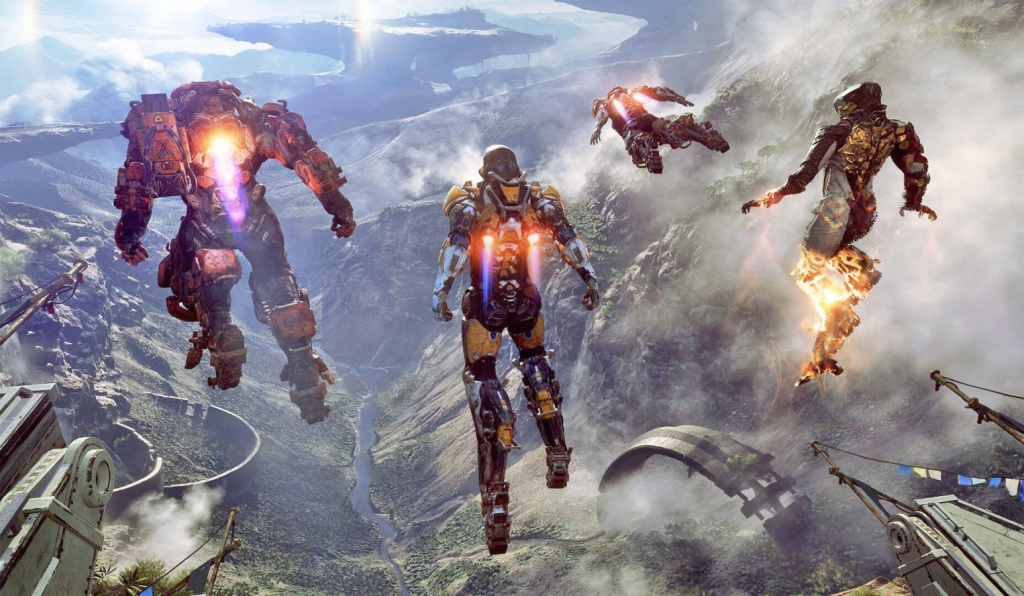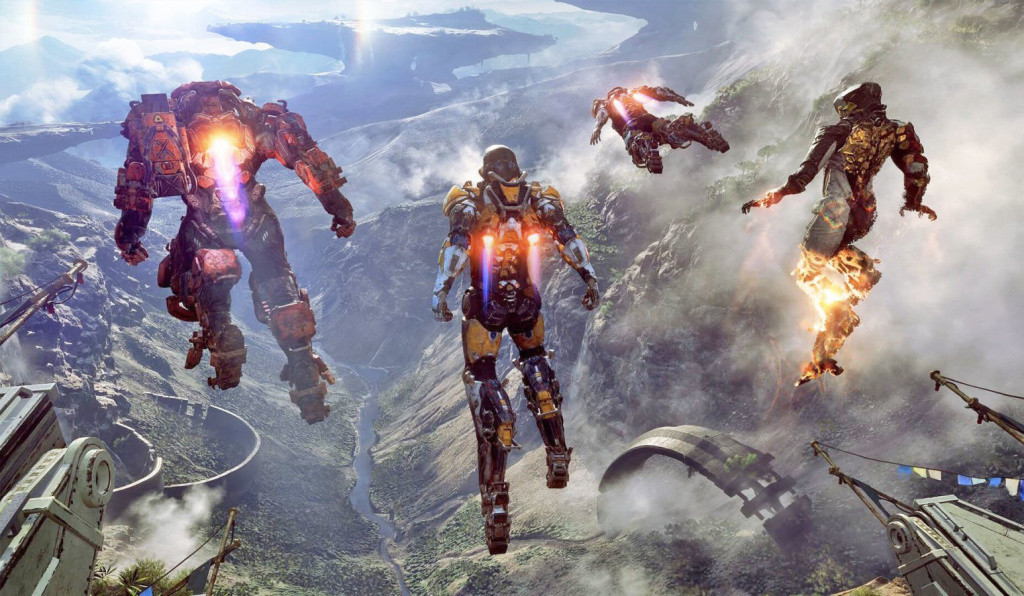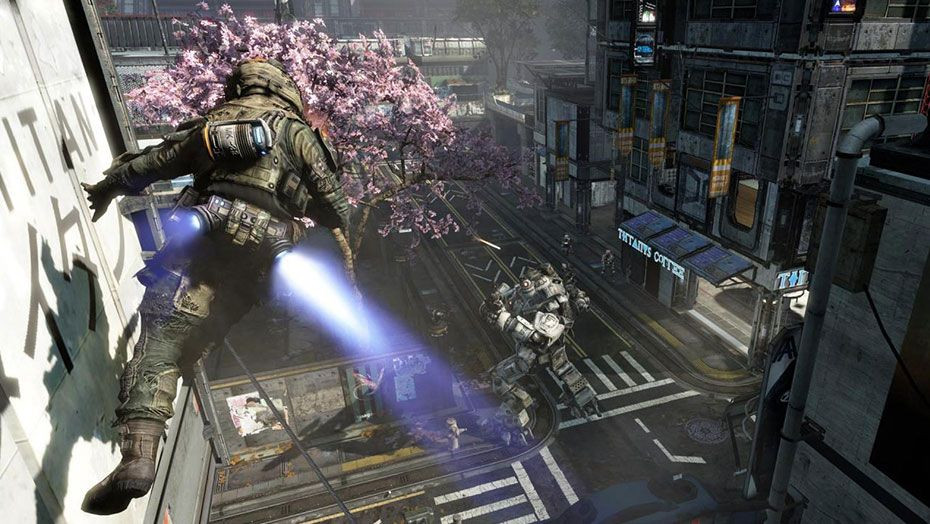
Back in 2013, excitement for new consoles PlayStation 4 and Xbox One had reached fever pitch. While EA wasn’t exactly in everyone’s minds with generation highlights Grand Theft Auto 5 and The Last Of Us consuming conversation, the company’s outlook looked positive. Mass Effect had become a huge hit, FIFA continued to do incredible sales numbers, and they were set to publish Titanfall from exciting new studio Respawn Entertainment.
As we approach 2020 and another fresh console cycle, it’s fair to say much of that excitement has either evaporated or feels tinged by almost everything that’s come since. But how?
EA placed its bets on Xbox One at the start of the generation, offering up exclusive content like Ultimate Team players for those on Microsoft’s machine – even releasing Titanfall as an exclusive on the big black box in February 2014. It was a gamble that didn’t exactly pay off, as the Xbox One slumped to an early second place sales-wise behind the PS4. It might also explain the publisher’s hesitance to fully embrace the Nintendo Switch, despite the hybrid console’s clear potential and burgeoning library of incredible games.
Unfortunately, even the games released on both consoles feel somewhat flat. FIFA 14 sold well but felt like a half step between generations, while NBA Live came and went – a theme throughout the rest of the generation as the basketball franchise continually faced middling critical reception. Finally, Battlefield 4 launched in a nearly unplayable state. In fact, even years on from launch it never had a patch to address a campaign save data eating bug.
Anthem failed to take off (Picture: EA/BioWare)
It was okay though, because the publisher had secret weapons in their armoury. Arguably the world’s biggest RPG developer at the time, BioWare was coming off the highly successful Mass Effect Trilogy, alongside two Dragon Age titles (admittedly one was received better than the other). As it turns out, BioWare is perhaps most indicative of EA’s fall from grace.
Dragon Age Inquisition received multiple Game of the Year awards despite never really getting out of second gear for much of its runtime, arguably endemic of a sluggish start to the generation rather than it really being the kind of game that would win the same awards in other years.
After numerous E3 teases (including one year where EA essentially showed off concept art for seemingly every game), BioWare revealed Mass Effect: Andromeda – a loose continuation of the Mass Effect franchise, set in a neighbouring galaxy and only featuring nods to the original trilogy. It was a smart play, given the reverence players have for that franchise. Unfortunately, despite multiple delays, the game launched as a buggy mess – it’s facial animations uploaded as memes for months after its release, and even in the week before it (thanks to EA’s early access trial with EA Access).
Andromeda never really recovered, but it’s lessons weren’t heeded. The developer’s next project, Anthem, would be torn apart and rebuilt with just months to go before launch, with it’s own creators seemingly unsure what kind of game it was supposed to be until it was shown on Microsoft’s E3 stage in 2017 (according to an eye-opening report on Kotaku). This was supposed to be EA cutting a piece of the “shared world shooter” pie, but instead set BioWare further adrift.
This squandered potential carries over to EA’s acquisition of the Star Wars license in 2013. The company could create exclusive Star Wars titles for the next ten years, the fruits of which had, up until recently, largely faced criticism. Battlefield developers DICE released the first Battlefront game in years but it offered no single player component and a lack of content in multiplayer.
Addressing the complaints, EA offered a short, four hour Star Wars romp in the 2017 sequel. It was, however, pretty forgettable and wholly underserving of how prominent it was in marketing – seemingly built from the remnants of multiplayer modes and with cameos shoehorned in all over the place. Of course, multiplayer would be the game’s saving grace, right?
Not really, as the game was lambasted before launch for atrocious pay-to-win mechanics that forced players to grind for random drops of items, known as loot boxes (since renamed by EA CEO Andrew Wilson as “surprise mechanics” in what might be the most tone deaf nomenclature in gaming history). Allegedly Wilson was contacted by Disney’s CEO Bob Iger regarding Battlefront 2’s bad press, forcing the progression system to be stripped out at the eleventh hour.
The Battlefront fiasco isn’t the only blot in EA’s Star Wars copybook, though – and it’s arguably not even the most disappointing. That distinction goes to Visceral, a development team unceremoniously shut down after the Star Wars game it was working on was canned, despite being led by Amy Hennig (of Soul Reaver and Uncharted fame). The reason EA gave was a lack of interest in single-player adventures, something the next studio proved simply isn’t true.
Respawn Entertainment was formed by Vince Zampella and Jason West after an acrimonious split from Activision following the release of Call of Duty: Modern Warfare and its sequel – two of the biggest successes of the last gaming generation. Despite Titanfall being stranded on the Xbox One, there was real excitement surrounding the sequel – and so there should have been: Titanfall 2 offers one of the best single-player shooter campaigns of the last decade, alongside an excellent (and unique) multiplayer game.
Unfortunately, EA chose to launch the game between Battlefield 1 and Call of Duty: Infinite Warfare. Against these two rival first-person shooter juggernauts, the game flopped commercially – a cruel fate for a game that stands taller than both of those titles (at the time of writing, the game is part of December 2019’s PlayStation Plus lineup).
Titanfall didn’t achieve big sales numbers (Picture: Respawn/EA)
In response, Respawn (later acquired by EA in 2017) split into two teams. One went on to create one of 2019’s biggest surprises, Apex Legends – a free-to-play Battle Royale title that’s garnered an impressive audience and a solid critical response. The second worked on the new Star Wars adventure, Jedi: Fallen Order – a solely single-player Star Wars title with a fully-fledged campaign, which recently broke sales records for the company.
It’s not the only signs of life at EA, either. According to a report on Kotaku, Anthem is being rebuilt from top to bottom, while BioWare have hopefully taken some of the lessons learned from the chastening experience into their next title – almost certainly the next Dragon Age.
Remember the glory days of Need for Speed: Underground? We do too. Ghost Games, a team assembled from ex-Criterion staff (among others) has been toiling away on the series for years, and finally, following a sequence of duds, NFS Heat looks to be an upturn in the series fortunes – the shot in the arm it needed after Payback.
Where EA has offered something new is in its services, namely EA Access. The subscription service offers free trials of most EA games, discounts on the games and their DLC, and perhaps most importantly, an ever growing vault of titles. On Xbox One, there are backwards compatible titles, too. The premium tier, Origin Access Premier, is now available on PC and offers access to brand new games upon release, in a way not dissimilar to Xbox Game Pass.
If EA could bring it to console, there’s every chance that, for example, someone that buys FIFA every year could end up trying Battlefield V, or Fallen Order, or anything else.
EA, despite its tough last few years, is responsible for some of gaming’s most enduring titles and moments – Skate, Dead Space, even Army of Two has its fans. Let’s hope the publisher can find their way back, because the world needs more games – just fewer “surprise mechanics”.

